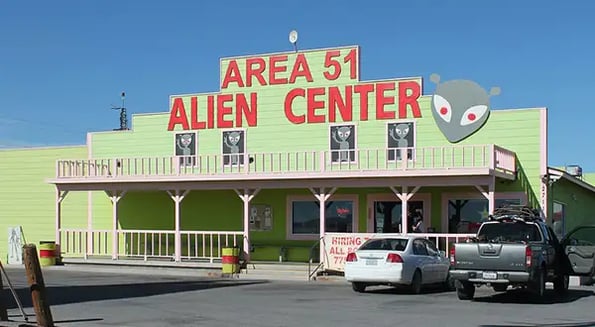Over the past few weeks, more than 1.8m RSVP’d to an event called “Storm Area 51, They Can’t Stop All of Us” on Facebook that was scheduled for this past weekend.

The made-up event generated lots of hype but didn’t result in any intergalactic incidents (although the Air Force did remind people to stay away from the fabled facility).
But it wasn’t a joke for advertisers
Instead, it was an out-of-this-world opportunity for brands to cash in on the valuable social momentum of a viral phenomenon.
And cash in they did: Lego launched an alien-themed ad campaign; Bud Light created an Area 51 Special Edition can and vowed to put it into production if it got 51k retweets (it got to 38k); and the usual suspects like Wendy’s, Burger King, and DiGiorno got involved.
Viral moments are worth their weight in memes
In our economy of influence, anyone who promotes brands — corporate or personal — practically has a responsibility to chime in on viral moments like the Area 51 raid to expand “reach.”
That’s why Lil Nas X immediately made an animated Area 51-themed music video, The Washington Post ran a hype-othetical piece about what the raid might look like, and mysterious merch accounts popped up like crop circles to sell Area 51 T-shirts.
